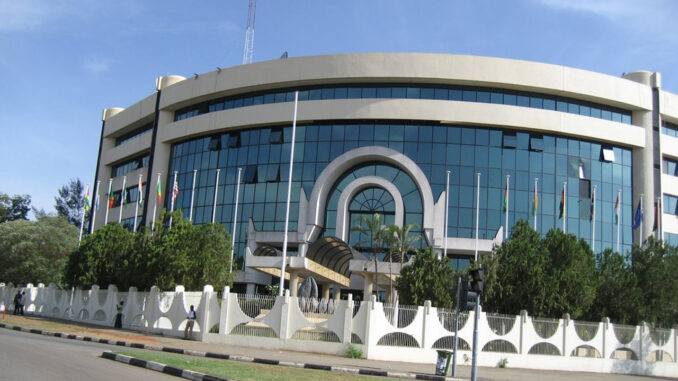
Without accountability and political intervention, ending child marriage and gender-based-violence in Sub-Saharan Africa will continue to be a mirage, further posing a severe developmental threat to the region.
This was the hallmark of discussions by experts at a dialogue held Tuesday to assess the level of implementation of the Economic Community of West Africa (ECOWAS) Child Policy and Roadmap to Ending Child Marriage at country level.
The event which was held virtually was organised by the West African Civil Society Forum (WACSOF), under the Pan Africa State Accountability Project (PASAP).
Statistics
In West Africa, one in 10 girls will marry before their 15th birthday, according to UNICEF estimates.
More than a third of girls in Nigeria, Africa’s most populous nation, end up in child marriages, and with 22 million married before the age of 18. The nation has among the highest number of child brides in Africa, according to a 2018 UNICEF report.
ECOWAS policy
In January 2019, authorities in member states of the ECOWAS made a political declaration and took a common position against child marriage by adopting the ECOWAS Child Policy and its Strategic Action Plan (2019-2023).
The declaration, which was made in Abuja, Nigeria’s capital city, adopted the retention and implementation of all children in formal and/or alternative quality education systems up to the age of 18 in a compulsory and progressively free manner.
A major focus of the action plan was reducing child marriage to the bare minimum by 2023.
Implementation status
While efforts by WACSOF, UNICEF, and several civil organisations helped in fast-tracking the adoption of the ECOWAS policy, implementation has been stagnant at the country-level, advocates say.
This informed WACSOF’s decision to organise Tuesday’s webinar to provide CSOs, institutions and other individuals working in child rights and gender issues a platform to engage with the ECOWAS on reviewing efforts and the progress made in implementing the Child Right Policy and The Road Map to ending Child Marriage.
The regional gender adviser at the West and Central Africa Regional Office of UNICEF, Deguene Fall, who spoke at the forum, noted that positive results were achievable when policies and advocacy are driven by political will and accountability.
She stated that child marriage was a key area of concern for the ECOWAS policy, and there’s an alarming data on social norms and gender-based violence in the region.
She believes full implementation of the ECOWAS policy would require strengthening the capacity of CSOs that can reach rural communities and serve as a check on government’s interventions.
Ms Deguene urged regional authorities to leverage and harmonise the instrument of the law, community efforts and the good standing of leaders of sociocultural institutions.
“This has to do with getting rid of endemic and some dysfunctional aspects of the various cultural traditions which harbor and encourage gender-discriminatory norms,” she said.
In her remarks, the general secretary of WACSOF, Komlan Messie, said there was a need to allow for freedom of the civil societies to contribute to the change needed in the area of Child Rights and Gender issues.
Similarly, the supervisor, Pan African States Accountability Programme (PASAP), Aida Seydi, stressed the importance of youth involvement in implementing the policy.
Bertin SOME, the director of Parliamentary Affairs and Research, ECOWAS Parliament, gave an overview on what the ECOWAS has done in implementing the tools of Child Rights.
“The good thing about this declaration is that it presents advocates at the country-level, an advocacy tool to hold their governments accountable,” he said.
Participants at the dialogue were enlightened on how they can support the implementation of the ECOWAS Child Policy.
END

Be the first to comment